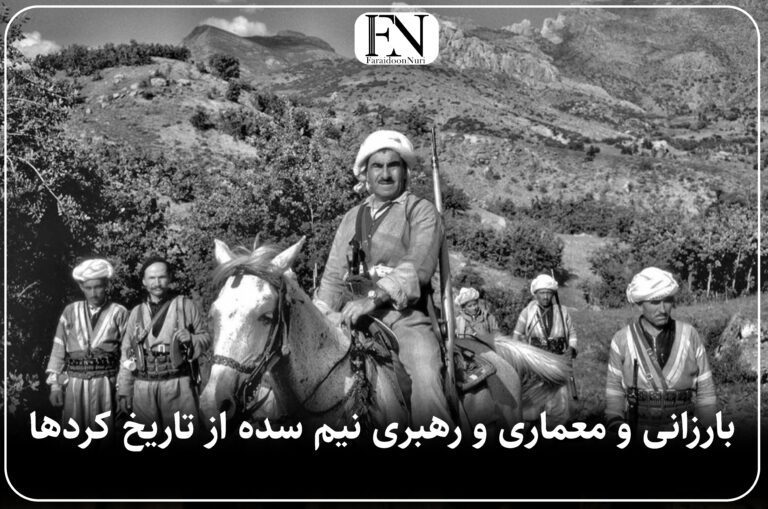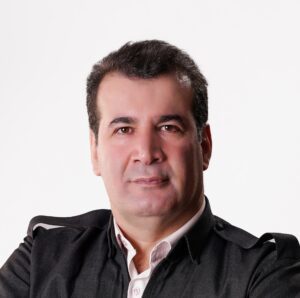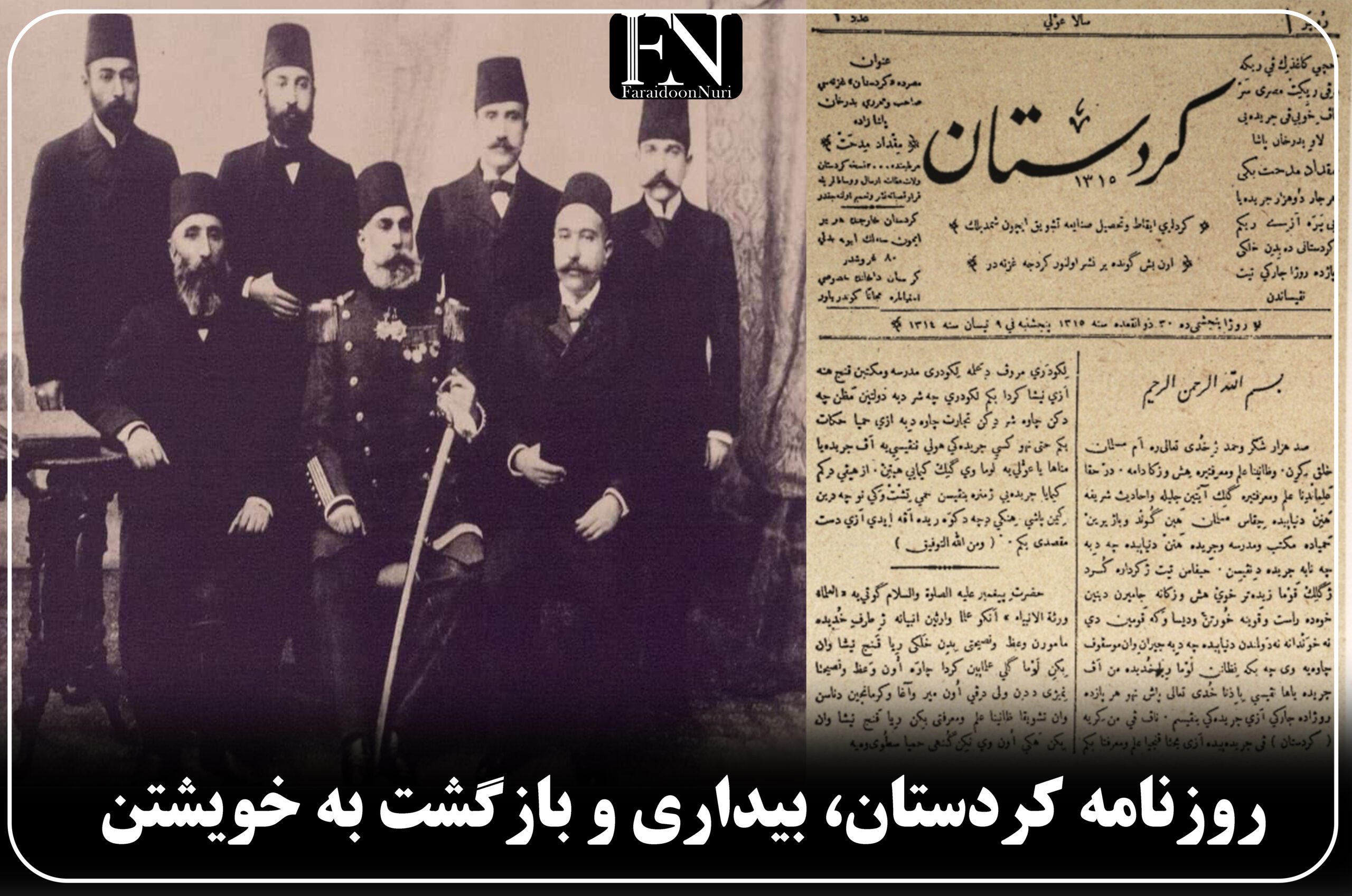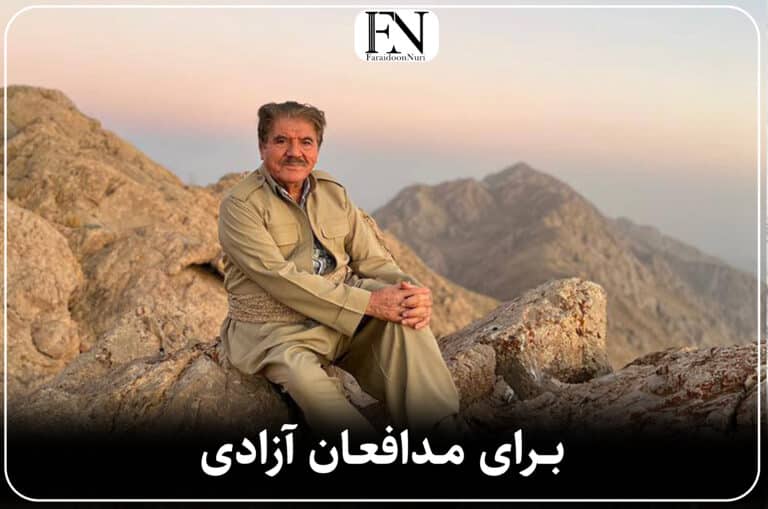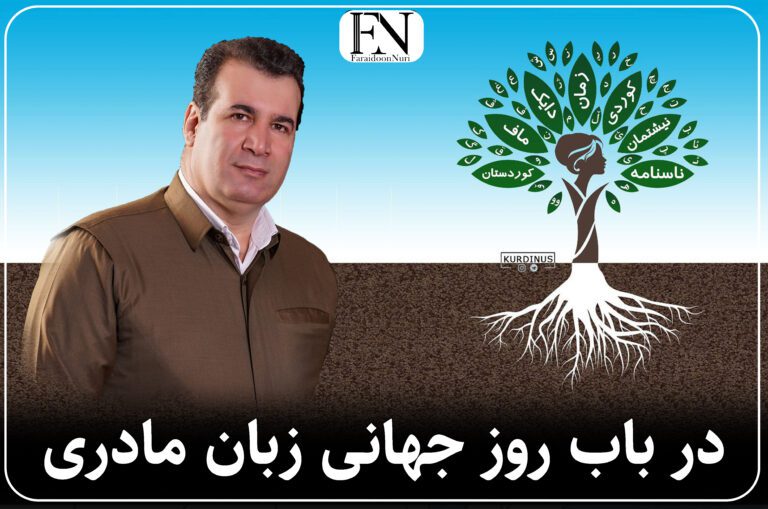126 years ago, on this day, thanks to the high efforts of Miqdad Medhat Badr Khan, far from the land and geography of Kurdistan, the foundation of Kurdish journalism was laid with the publication of the first issue of the Kurdistan Newspaper in Cairo on April 22, 1898.
The noble efforts of the ancestors and predecessors of Miqdad Medhat Badr Khan to establish a Kurdish political entity in the geographical regions of Jazira and Botan, and their reasons for failing to achieve their goals, are recorded in the works of Kurdish historians, orientalists, and others.
From April 22, 1898, to April 14, 1902, during approximately four years and several intermittent periods, 31 issues of Kurdistan Newspaper were published. The main goal of its publication was to narrate and publish news of current events in Kurdistan, discuss cultural, social, and political issues of the Kurds of that time, and emphasize the existence of Kurds as a distinct and different nation from their neighboring nations. Its overall policy was to strengthen national awareness and enlightenment among the Kurds. Interestingly, its publication took place in exile and in Cairo, London, and Geneva (Switzerland), because at that time there was no opportunity in the entire geography of Kurdistan to realize such a dream!
On the front page of each issue of this newspaper, this phrase draws the attention of the knowledgeable: “I send two thousand free copies of Kurdistan to Kurdistan in every issue for the people to have access to.”
After publishing 5 issues of this newspaper, due to Miqdad Medhat Badr Khan’s illness, his brother Abdulrahman Badr Khan took over the management and continuation of its publication, and the sending of two thousand copies of each issue to Kurdistan continued until the end of its publication. It is not far-fetched to think that the Badr Khan brothers, by adopting such a valuable approach, set a commendable and admirable tradition and an effective and practical model for the knowledgeable, elite, and intellectual Kurds. Their message to their successors is clear: the effort to lift oppressive domination and achieve freedom and the goal of liberating one’s nation requires a lifetime of effort, financial sacrifice, and persistent and continuous endeavor. Only with a spirit of sacrifice, diligent effort, a precise and correct reading of developments, and a logical and accurate assessment of conditions and proper issue-raising, can a downtrodden nation escape the unfavorable conditions imposed on it.
The birth of Kurdistan in Cairo and its continued existence in London and Geneva is a clear indication of the intolerance and opposition of the decrepit and corrupt Ottoman governance apparatus to any identity-seeking efforts and any awakening efforts whose philosophy is the defense of basic rights and liberation from the historical oppression imposed on the Kurds.
Kurdistan Newspaper
The valuable tradition that the Badr Khan brothers initiated marked the beginning of a wise return to oneself and the lighting of a lamp in the dark house of despotism governing the fate and geography of Kurdistan. It was a difficult and arduous, yet blessed path, which later hundreds of thinkers, intellectuals, writers, and Kurdish journalists, as heirs of Miqdad Badr Khan’s valuable legacy, pursued with love for freedom and justice and dedication to their beloved homeland. They have patiently carried the burden of the hardships of their time with the power of their pen and the strength of thought and argument, striving to preserve, develop, and honor this precious heritage. Up to this day, all these distressed and concerned individuals, the true pioneers of the defense of freedom and justice, alongside their brave colleagues from other nationalities around the world, especially in the crisis-stricken Middle East, have been and will continue to be the vanguard of rightful demands and the defenders of the fundamental rights of their nation.
History bears witness that neither threats and intimidation, nor imprisonment and expulsion, nor deprivation, coercion, migration, and exile have been able to deter the devoted followers of Badr Khan and Terjani Zadeh from pursuing this difficult but sacred and enduring path.
The emergence of hundreds of prominent intellectuals in each generation and the publication of thousands of different journals, along with the practical training and education of thousands of skilled and thoughtful journalists over the past decades, are the results of the multiplication and fruition of the sacred seed planted by Miqdad Medhat Badr Khan in exile. Now, on the 126th anniversary of this auspicious action, Kurds have traversed a long and difficult road in journalism and media activities. Their capable journalists and media personnel, relying on their professional experience and knowledge, stand shoulder to shoulder with renowned media figures and famous journalists worldwide. With sufficient awareness and mastery over the fundamental issues of their field and with commendable confidence, they narrate the sufferings, struggles, and socio-political developments of their nation and society and other nations of the world.
Undoubtedly, during these many years and periods of history, there have been those who, by donning the robe of journalism and assuming this title, have published newspapers and established media to justify tyranny and disseminate specific materials and ideological biases contrary to the ideals of the father of Kurdish journalism (Badr Khan). They have sometimes gone so far as to become the servants of oppression and the penholders justifying injustice and cruelty, baking their bread in the ovens of the oppressors of the time. However, this group, both quantitatively and qualitatively, is an exception to the general rule, and like any other profession or movement, the existence of such elements and individuals cannot undermine the importance, credibility, necessity, and value of the existence of free journalism and information dissemination.
Websites, informational channels, and some satellite networks, which without adhering to professional journalism standards and principles, sometimes promote violence, distort the flow of awareness in society, distort reality in events, increase violence and false tensions in the target society, sanctify anti-human and irrational behaviors and actions, and pump false and fake news into the society’s psychological space, belong to this category and are the harmful pests of the journalism caravan in Kurdistan.
The written language of Kurdistan Newspaper was the Botan and Jazira dialect of the Northern Kurmanji branch of the Kurdish language, and in it, the prose and poetry and the literary heritage of the Kurds, especially the valuable epic “Mam and Zin” by the late Ahmad Khani, were printed and published in various issues.
The inclusion of readers’ opinions and the publication of their letters from different parts of Kurdistan in various issues of this newspaper indicates the extent of its influence, the interest, and the hope of readers for its continued publication.
Kurdistan Newspaper
It is worth mentioning that a significant portion of this valuable heritage was discovered for the first time through the valuable efforts and lasting work of the late Dr. Kamal Fuad in 1968 in Germany, and a few years later in 1972 in Baghdad, adorned with a preface and annotations by this man of virtue. It is clear that our nation and the people of culture and journalists are grateful for the valuable efforts of the late Dr. Kamal Fuad, and will always honor his memory, who was one of the purest and most prominent Kurdish political leaders in the second half of the 20th century.
Fortunately, the diligent efforts of other researchers and cultural enthusiasts bore fruit, and the 5 issues that Dr. Kamal Fuad was striving to find were discovered by others and entrusted to him for publication. The complete edition was reprinted in a suitable circulation, thus preserving this immense heritage and valuable treasure from the ravages of oblivion and registering and immortalizing it in the spiritual and cultural heritage system of the Kurds and Kurdistan.
